WWI Italian Infantry in armor (100% new molds) 1/35
17,50€
Solo quedan 1 disponibles

*Please check our Privacy Policies to see how to we use your personal data.
*Por favor revisa nuestra Política de Privacidad para ver como tratamos tus datos personales
SCALE
1:35
TIME PERIOD
WW1
BOX SIZE
247 x 183 x 33 mm
NUMBER OF DETAILS
51+214
FIGURES COUNT
4
During the WWI so-called “death companies” were created in the Italian army to carry out assault operations. They were manned by volunteers, and according to their purpose were to pave the way for the attacking infantry units. Their primary task was to clear the passages in the enemy’s barriers, for which the fighters of these companies were equipped with special assault armor.
From the very beginning of the war, the Italian General Staff paid special attention to this type of individual armor protection. The equipment of the assault units included special assault helmets, shields and cuirassiers (the most famous was the Farina cuirass). According to some sources, these units existed until 1916.
ESCALA
1:35
PERIODO DE TIEMPO
PRIMERA GUERRA MUNDIAL
TAMAÑO DE LA CAJA
247 x 183 x 33 mm
NÚMERO DE DETALLES
51+214
NÚMERO DE FIGURAS
4
Durante la Primera Guerra Mundial se crearon en el ejército italiano las llamadas «compañías de la muerte» para llevar a cabo operaciones de asalto. Estaban integradas por voluntarios y, según su finalidad, debían allanar el camino a las unidades de infantería atacantes. Su tarea principal era despejar los pasos en las barreras del enemigo, para lo cual los combatientes de estas compañías estaban equipados con armaduras especiales de asalto.
Desde el principio de la guerra, el Estado Mayor italiano prestó especial atención a este tipo de blindaje individual. El equipamiento de las unidades de asalto incluía cascos de asalto especiales, escudos y coraceros (el más famoso era el coracero Farina). Según algunas fuentes, estas unidades existieron hasta 1916.



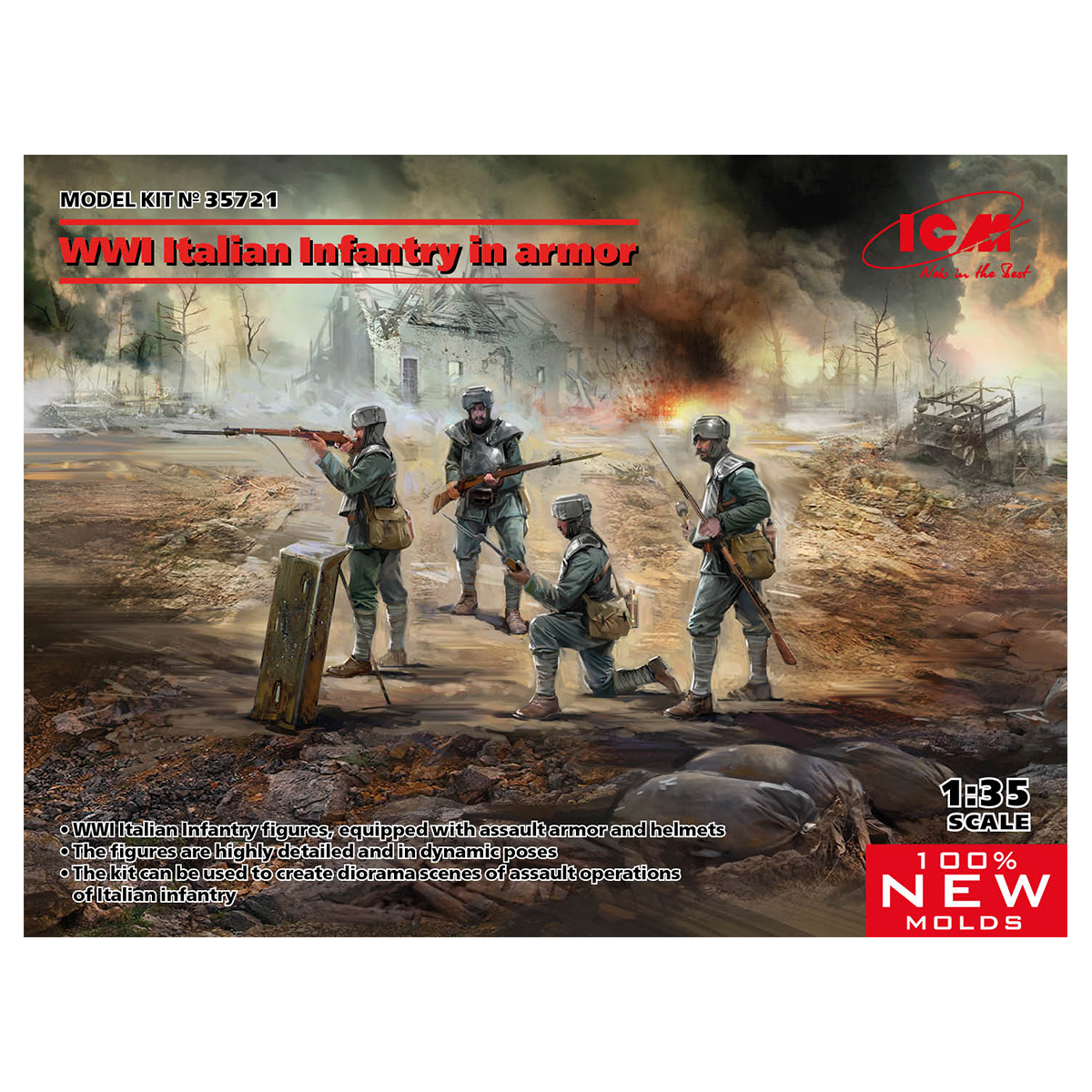
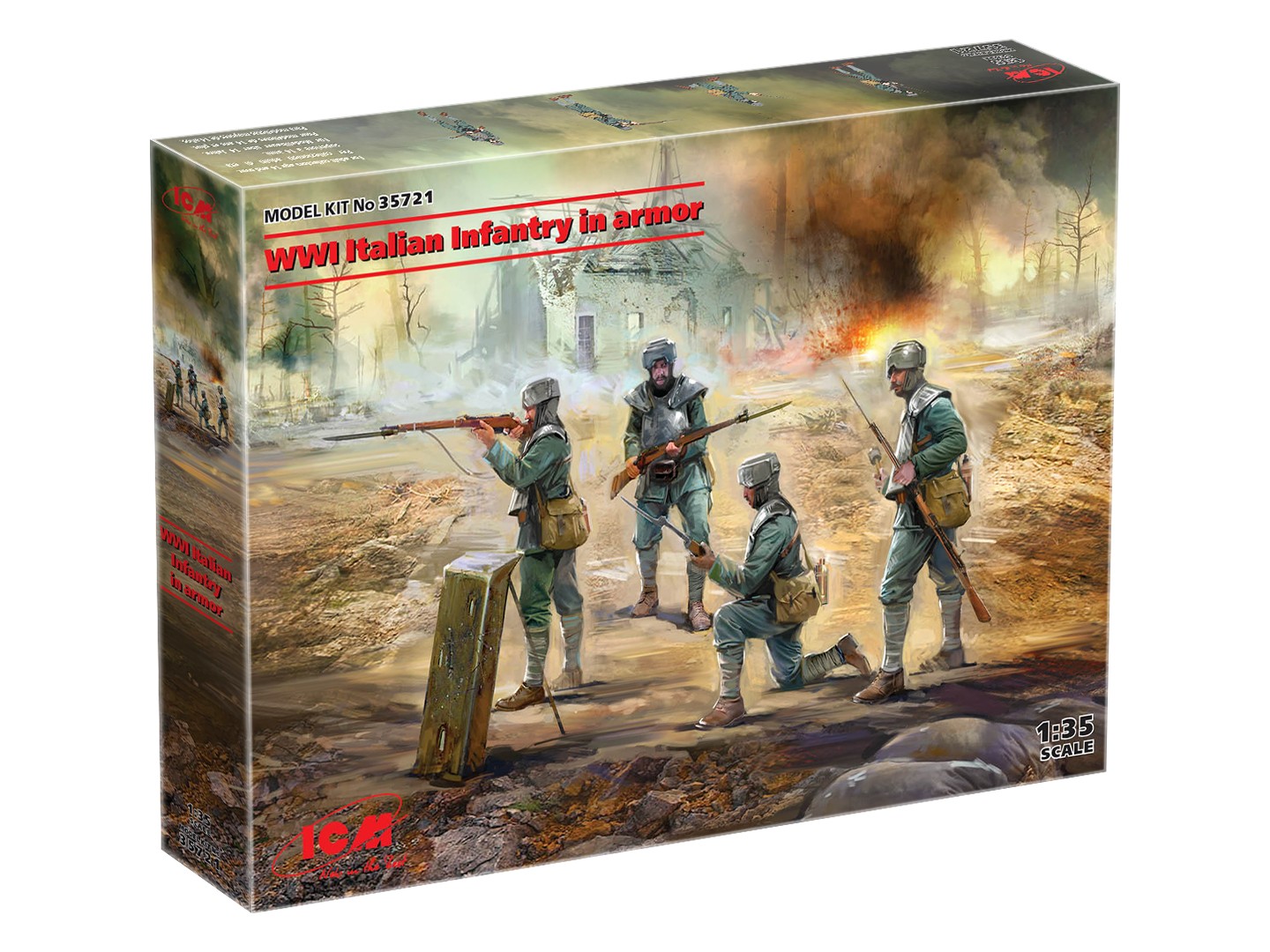
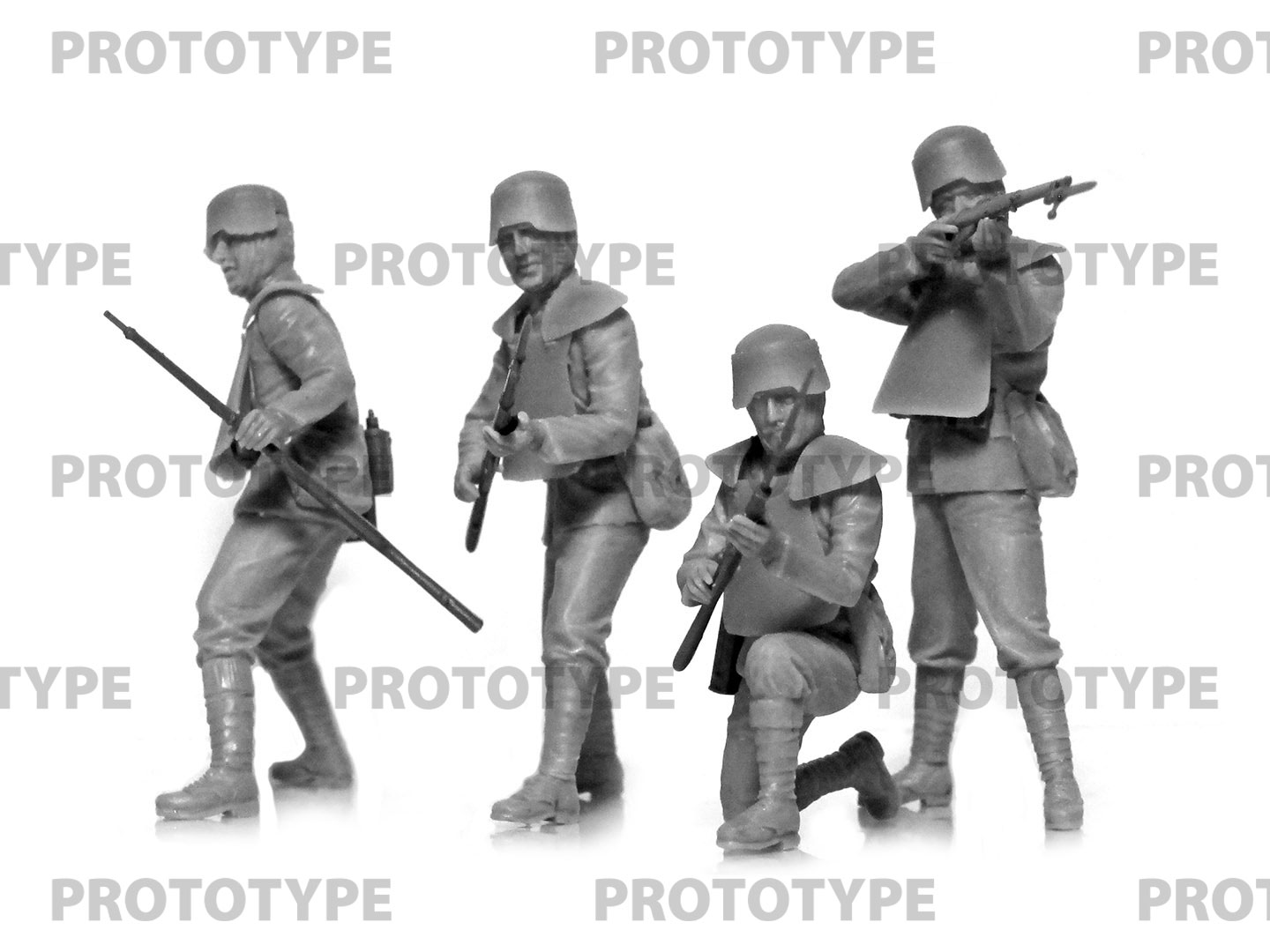
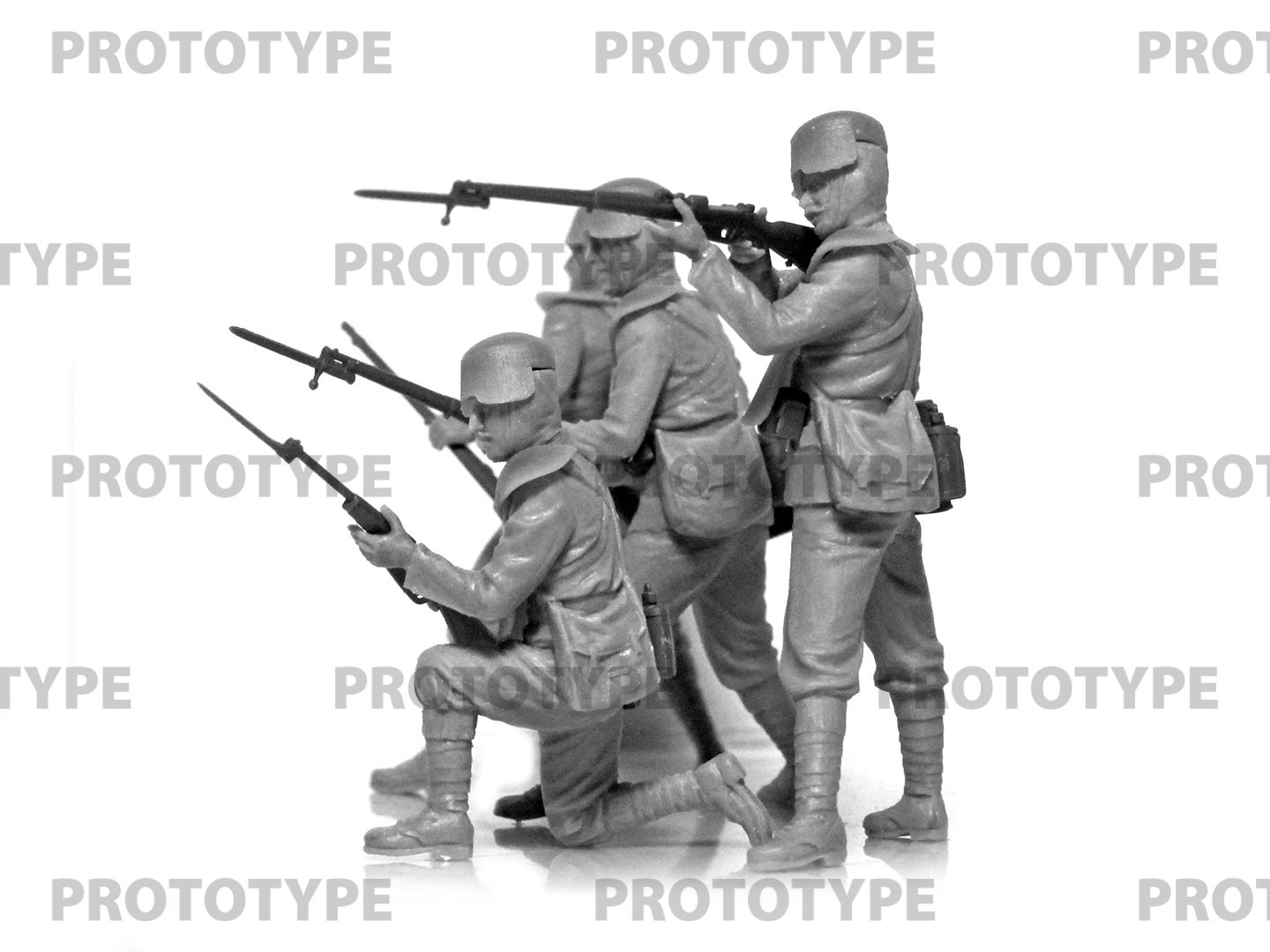
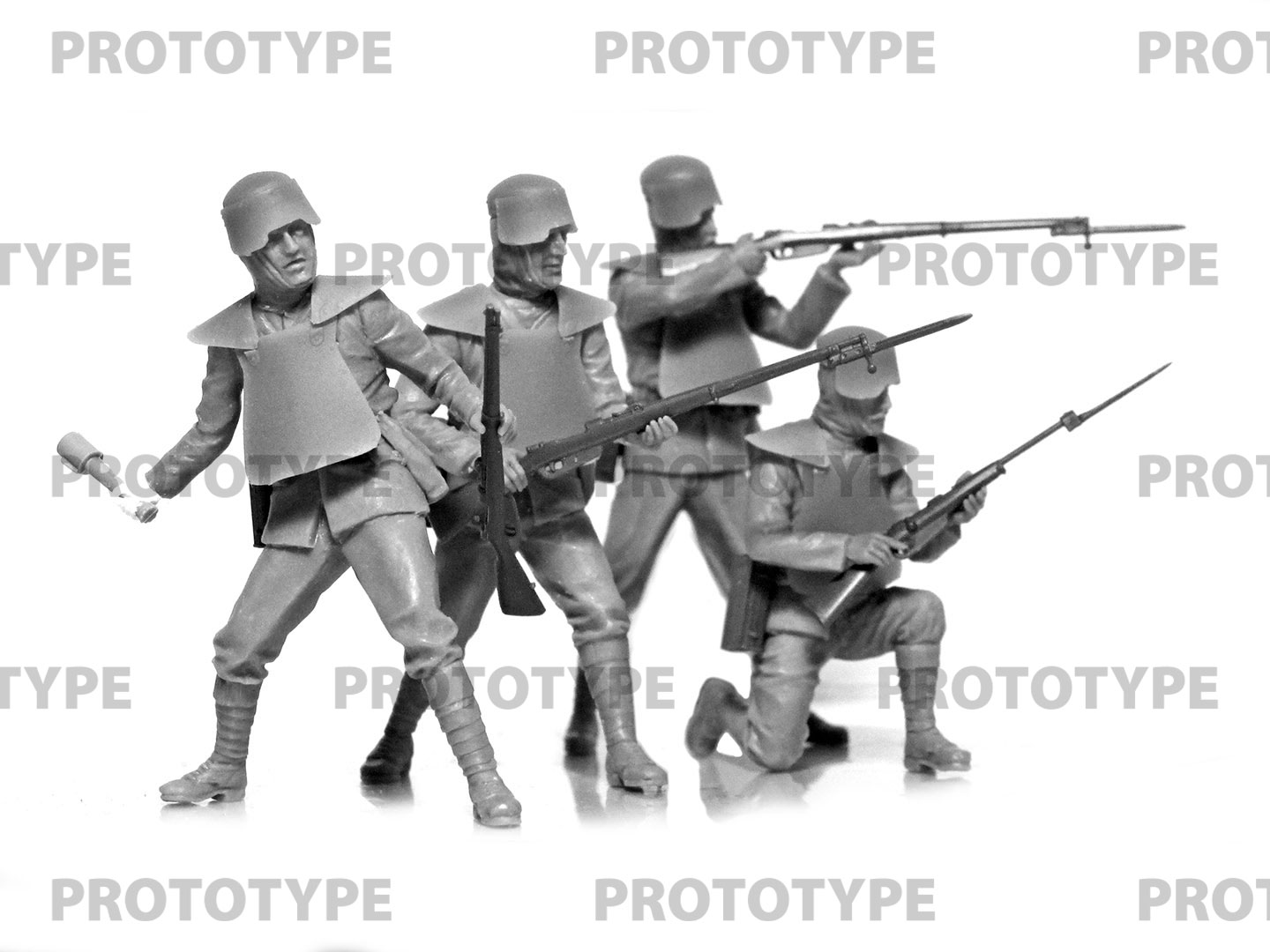
 Solicitud de ficha producto tipo SDS / Seguridad de producto
Solicitud de ficha producto tipo SDS / Seguridad de producto